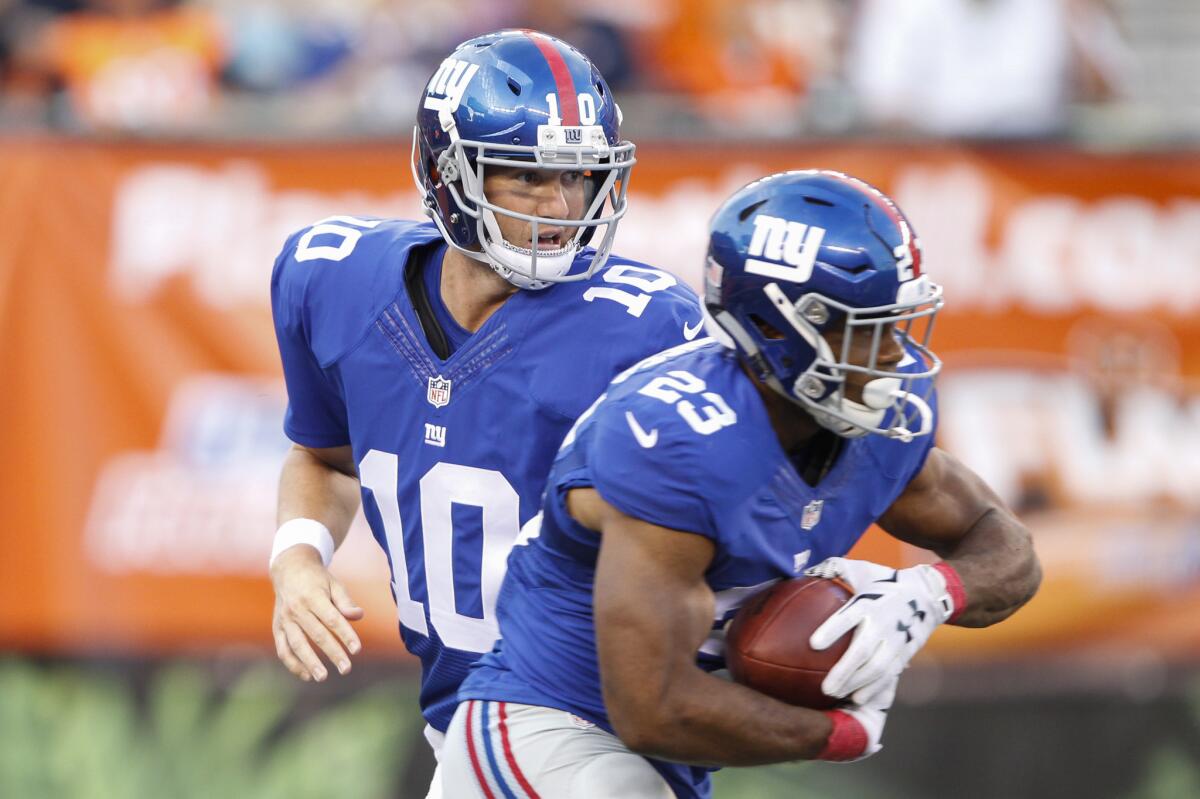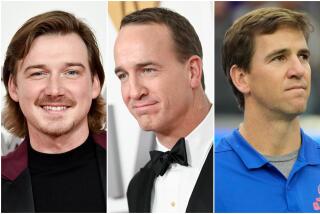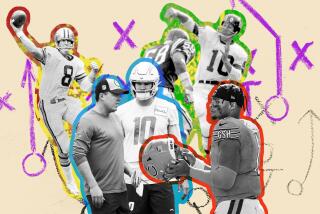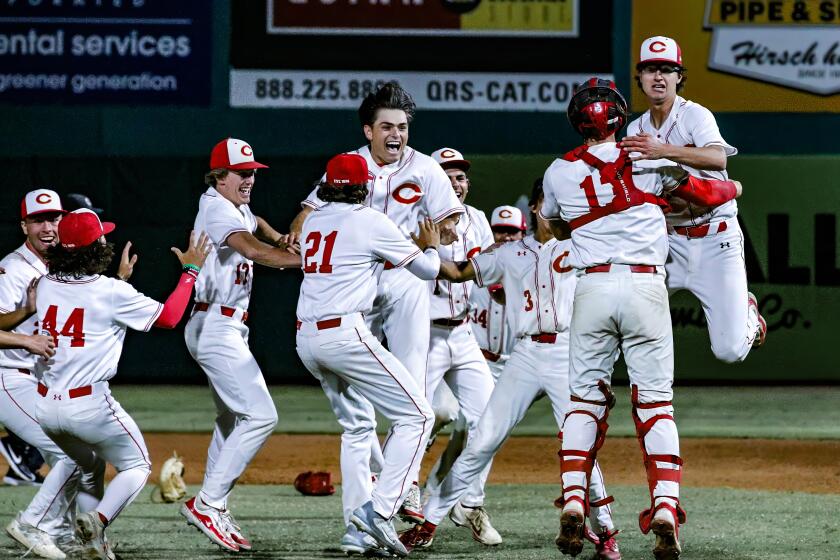Rashad Jennings: ‘I should not have shared that information’ on Eli Manning call

New York Giants quarterback Eli Manning hands the ball off to running back Rashad Jennings on Aug. 14.
- Share via
Giants running back Rashad Jennings has a weekly column appearing in the New York Post this football season.
He put the forum to good use Tuesday, using the space to apologize for revealing to ESPN that quarterback Eli Manning had told him not to score on consecutive carries late in the team’s eventual 27-26 loss to the Dallas Cowboys on Sunday.
“I make no claims to be a perfect communicator. But I also assure that I had no ill will at all in stating what I did,” Jennings wrote. “Yet I admit in retrospect that I should not have shared that information with the world. I chose to do so, and for that choice, I am truly sorry.”
Up by three with 1:53 to play, the Giants had a first down at the Cowboys 4-yard line. Jennings carried the ball twice, gaining a total of three yards.
Jennings said after the game that he had been instructed to avoid the end zone on those two running plays. Manning later admitted that he told Jennings to do so in an attempt to run time off the clock. Problem was, Manning thought the Cowboys only had one timeout remaining and they actually had two.
After a Manning incompletion on third down and a Giants field goal, the Cowboys still had 1:34 remaining on the clock to put together a game-winning drive. Dallas did just that, claiming victory after Tony Romo found Jason Witten in the end zone with seven seconds left on the clock.
It wasn’t long before Jennings realized his comments were becoming a big deal.
“As soon as I got word of the headlines, I called Eli, and before I could even begin to apologize, he basically expressed his understanding,” Jennings wrote. “Being the humble guy that he is, he wanted us to put this fiasco behind us with no hard feelings so that we could focus on the Falcons. That is why I am taking this opportunity to more formalize my apology to Eli, the team and the fans. I also have apologized to Coach [Tom] Coughlin.”
He added: “As professional competitors, our deep-rooted desire to win is usually our best friend. It can drive us to leave everything out there on the field. But sometimes, if we are not careful, it can consume us enough to lead us, in the heat of a moment, to say things that only our souls should hear.”
More to Read
Go beyond the scoreboard
Get the latest on L.A.'s teams in the daily Sports Report newsletter.
You may occasionally receive promotional content from the Los Angeles Times.











